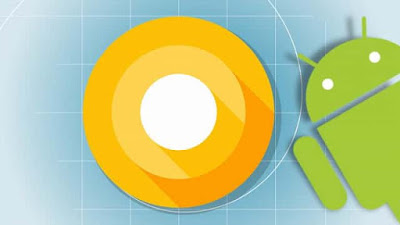When Microsoft has announced that there will no more major OS versions, long back, the only question everyone has was, "What next?" Microsoft came up with the concept of Modular updates, that updates the software diving it into modules.
Google is now working on the concept of Modular updates, but Google is working from a different perspective. The life cycle of an Android software update follows several steps - Android Dessert release by Google, Customized Board Support Package by hardware manufacturers, Customizations by device makers with their requirement, Technical Acceptance by carriers and finally reaches the end users.
Based upon the magnitude of update frequency, the step of customizing the Board Support Package by hardware manufacturers and customizations by device makers are becoming hectic overheads. Addressing these challenges, Google is opting for modular updates with the Project Treble.
Google has been releasing the open-source code for every major update of Android. The end users are updating the software and using the same apps without hassle. But how!? It is all because of Compatibility Definition Document (CDD), which defines the forward and backward compatibility of the applications, and Compatibility Test Suite (CTS), which allows the application to be tested on several parameters for compatibility. The vendors customize/optimize the code to be device specific. Google wants to take advantage in separating the software from the vendors from the Android OS Framework. As a result, the overhead for vendors is reduced.
The following comparison can give a little more understanding about the concept of modular updates.
This implementation helps the device makers to deliver the updates to the user by popping up for the update of Android OS framework. However, this feature goes live only with the manufacturers with devices powered by Android O. Google is also working on a method to implement the region-specific features and move them into common Android Open Source Project (AOSP) codebase. As now, Sony and Qualcomm has provided many such code and bug fixes. This helps them avoid the rework on code for the particular module for the next Android release.
Google is now working on the concept of Modular updates, but Google is working from a different perspective. The life cycle of an Android software update follows several steps - Android Dessert release by Google, Customized Board Support Package by hardware manufacturers, Customizations by device makers with their requirement, Technical Acceptance by carriers and finally reaches the end users.
Based upon the magnitude of update frequency, the step of customizing the Board Support Package by hardware manufacturers and customizations by device makers are becoming hectic overheads. Addressing these challenges, Google is opting for modular updates with the Project Treble.
Google has been releasing the open-source code for every major update of Android. The end users are updating the software and using the same apps without hassle. But how!? It is all because of Compatibility Definition Document (CDD), which defines the forward and backward compatibility of the applications, and Compatibility Test Suite (CTS), which allows the application to be tested on several parameters for compatibility. The vendors customize/optimize the code to be device specific. Google wants to take advantage in separating the software from the vendors from the Android OS Framework. As a result, the overhead for vendors is reduced.
The following comparison can give a little more understanding about the concept of modular updates.
 |
| Project Treble Comparison |










